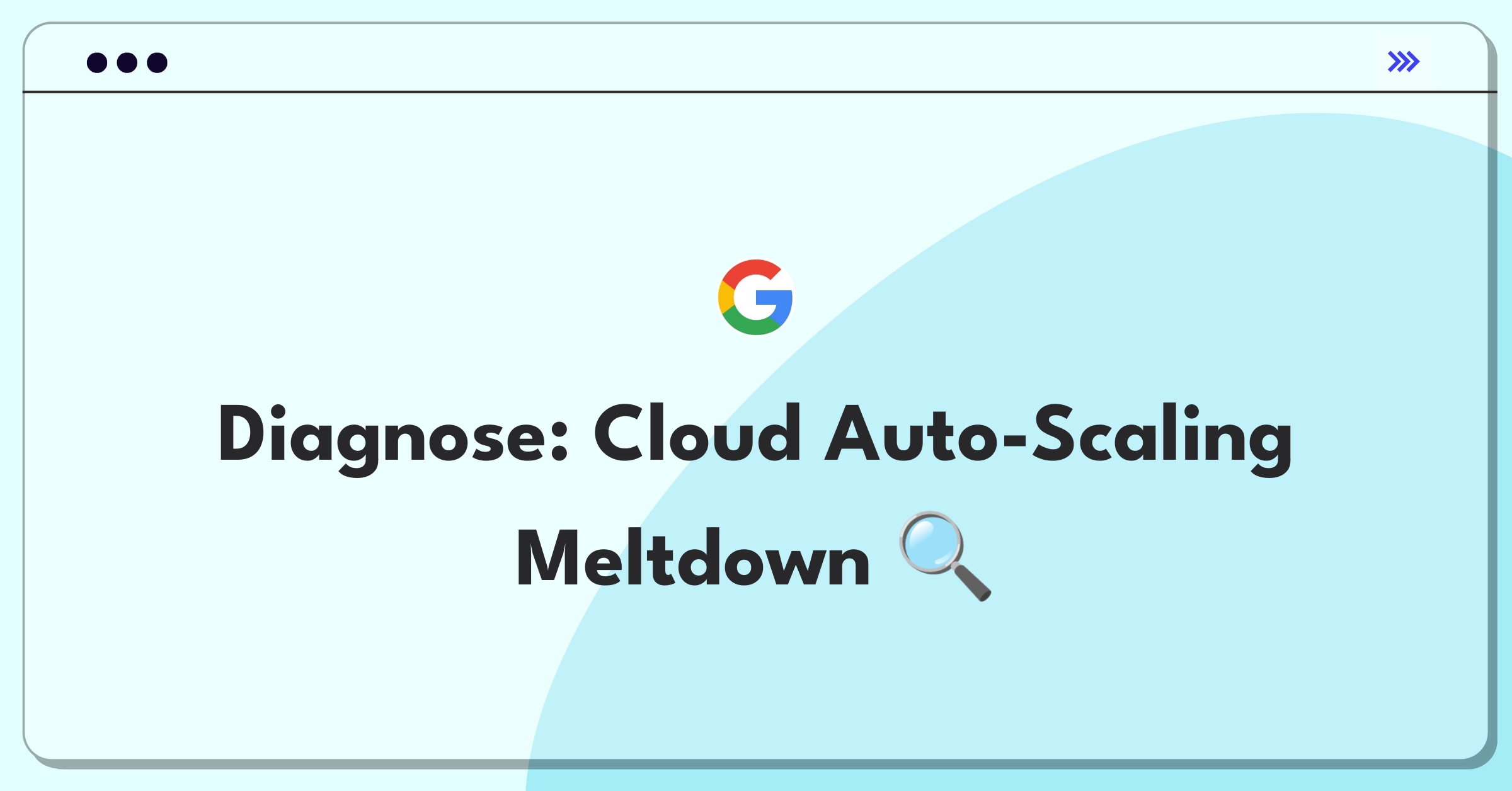Introduction
Google Cloud's auto-scaling rules failing to trigger for 40% of workloads is a critical issue that demands immediate attention. This problem could lead to inefficient resource utilization, potential service disruptions, and increased costs for our customers. I'll approach this analysis systematically, focusing on identifying the root cause, validating hypotheses, and developing both short-term fixes and long-term solutions.
Framework overview
This analysis follows a structured approach covering issue identification, hypothesis generation, validation, and solution development.
Step 1
Clarifying Questions (3 minutes)
Why it matters: Understanding the scope helps prioritize our investigation and potential solutions. Expected answer: It's affecting a mix of workloads, but more prevalent in certain types. Impact on approach: If it's specific workloads, we'll focus on those configurations; if widespread, we'll look at core auto-scaling systems.
Why it matters: Recent changes often correlate with new issues and could point us to the root cause quickly. Expected answer: There was a minor update to the auto-scaling algorithm two weeks ago. Impact on approach: If confirmed, we'd prioritize investigating that update and its potential unintended consequences.
Why it matters: Unusual resource patterns could indicate why auto-scaling isn't triggering as expected. Expected answer: Some workloads are showing higher CPU usage without corresponding scale-ups. Impact on approach: This would lead us to investigate the thresholds and metrics used for scaling decisions.
Why it matters: User reports can provide valuable insights and real-world impact of the problem. Expected answer: A few enterprise customers have reported slower response times during peak loads. Impact on approach: We'd analyze these specific cases to understand the impact and potentially identify common factors.
Subscribe to access the full answer
Monthly Plan
The perfect plan for PMs who are in the final leg of their interview preparation
$99 /month
- Access to 8,000+ PM Questions
- 10 AI resume reviews credits
- Access to company guides
- Basic email support
- Access to community Q&A
Yearly Plan
The ultimate plan for aspiring PMs, SPMs and those preparing for big-tech
$99 $33 /month
- Everything in monthly plan
- Priority queue for AI resume review
- Monthly/Weekly newsletters
- Access to premium features
- Priority response to requested question


.png)